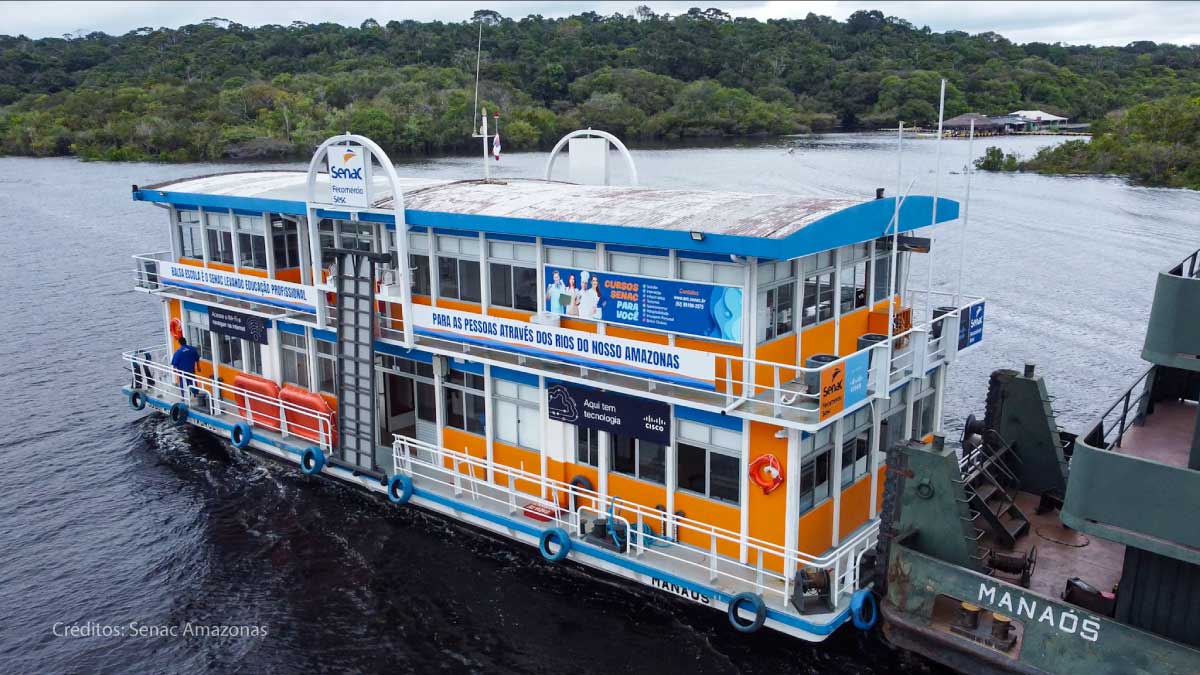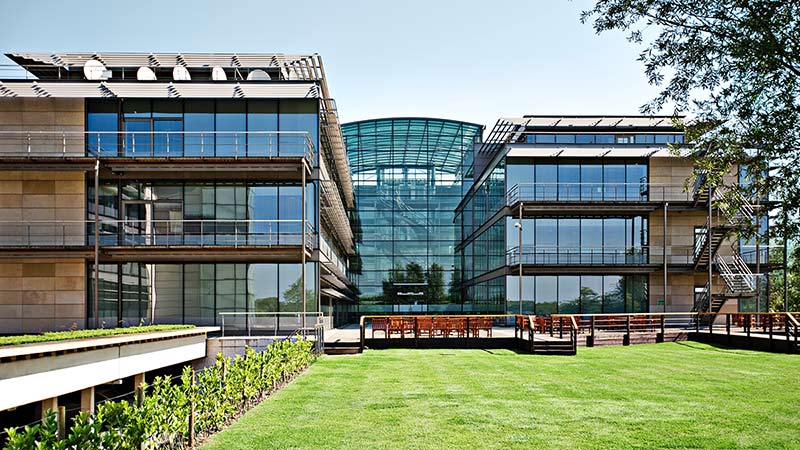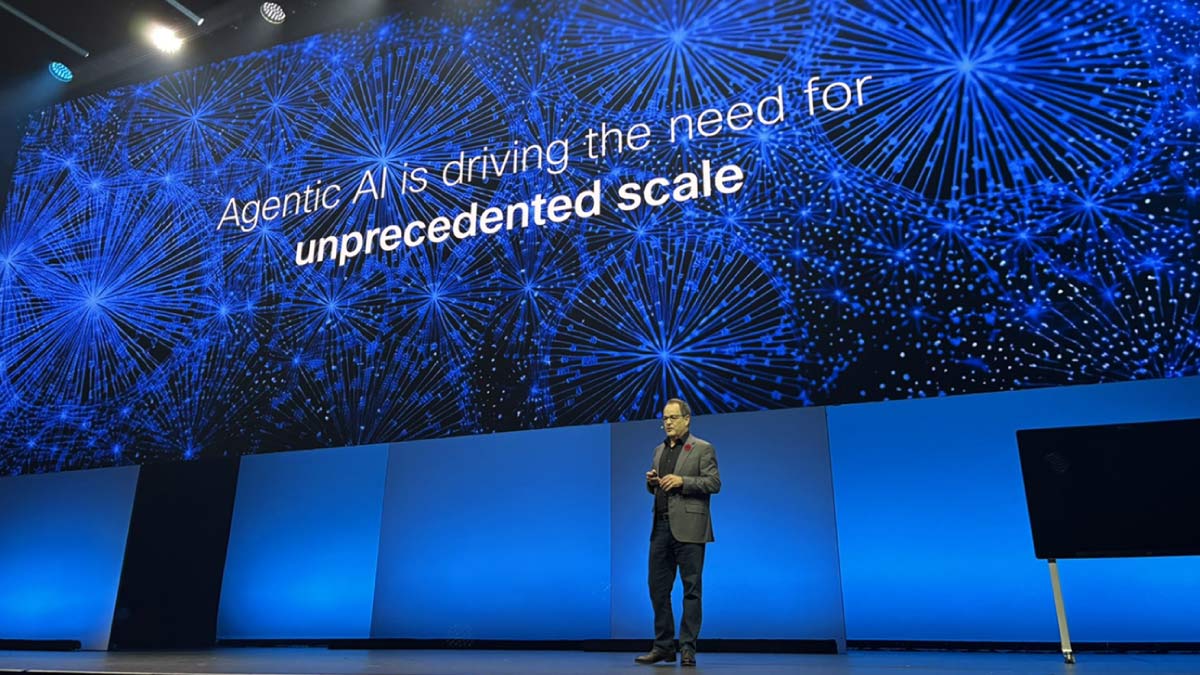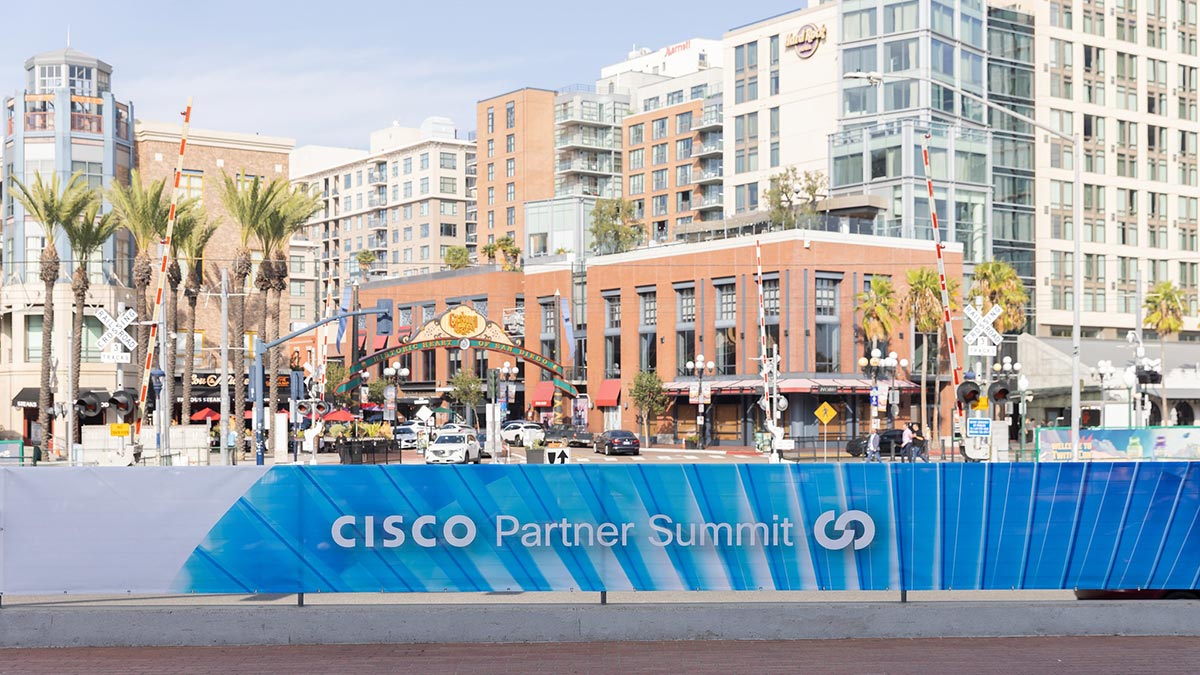The Amazon rainforest is the most biodiverse place in the world, and it’s critical for Earth’s delicate balance of temperature, rainfall, and ocean currents. But today this wondrous region is under siege, as mining, oil drilling, and deforestation — combined with wildfires and droughts — create a cycle of devastation.
That’s why it’s imperative to create economic alternatives in the region. But bringing skills and education to remote river communities can be difficult.
One solution is the Balsa-Escola, or Ferry School. Run by Senac, Brazil’s national Commercial Training Service, it’s been traveling the Amazon River and its tributaries for years, sharing real-world skills in everything from business and commerce to hospitality and food preparation. Recently, it received a big lift from Cisco, with modernized digital infrastructure and access to courses and certifications from the company’s Networking Academy, one of the longest-standing IT skills-to-jobs programs in the world.
“Over more than two decades of operation, the Senac Ferry School ferry has been a vital vehicle of education and knowledge for the riverside communities of Amazonas,” said José Roberto Tadros, president of Senac. “Now, our partnership with Cisco takes this project to a new level, integrating next-generation technology and connectivity into our vessel. This initiative allows us to offer a diverse range of professional IT training to people who, without Senac, would have difficulty accessing these opportunities.”
The boat also generates public WI-FI to its immediate area, which can open new opportunities for remote communities that lack digital access, while fostering entrepreneurship and job creation.
Fran Katsoudas, Cisco’s executive vice president and chief people, policy and purpose officer, highlighted the initiative’s alignment with the company’s efforts to close the digital divide — and Cisco’s core purpose: powering an inclusive future for all.
“With efforts like the Senac Ferry School,” Katsoudas said, “we have the ability to drive a new level of education and engagement. We know that digital access is incredibly important. And more and more around the world as people have access to technology, it can become an equalizer.”
A long tradition of investments in Brazil
Cisco — particularly its Country Digital Acceleration (CDA) program, which partners with Cisco Networking Academy — has made Brazil a key priority. The company has been investing in technology and expertise in Brazil for 30 years, supporting its digital transformation, while Cisco’s partnership with Senac dates back two decades. Cisco Networking Academy has trained more than 720,000 students throughout Brazil, albeit on dry land. With the Ferry School, these efforts will expand to watery locales. And the timing could not be more imperative.
“Throughout the rainforest, the rivers are essential for communication and to deliver services and products,” said Gabriel Bello Barros, Cisco Networking Academy Brazil lead. “But lately the images are deeply unsettling in terms of lower river levels, forest destruction by fires, and climate change.”
Bello Barros believes that Networking Academy and the Ferry School can help upskill local economies and lessen human impact on the ecosystem.
“It supports a transition towards more digital and green jobs,” he explained. “And it’s a way to raise awareness towards the positive promise of technology and digital literacy. Through Networking Academy, we can help the development of the next generation of IT professionals in Amazonia and thus its transition to a greener economy.”
For Rodrigo Uchoa, director of digitalization at Cisco Brazil, the initiative represents nothing less than “democracy” — of education and opportunity.
“We are democratizing professional education and access to technology and connectivity for riverside communities in Amazonas,” he said, “opening new social and economic perspectives for the region and its population, elevating technology as a fundamental skill to promote sustainable development in the Amazon region and the country.”
A future wave of connectivity and opportunity
Of course, tech acumen is essential to many future economic opportunities. And Networking Academy certifications provide a solid foundation towards good-paying jobs — in an industry facing a global shortage of skilled workers and a world in which, thanks to hybrid work, more employees can check in from all but anywhere.
“The great social impact that we can support in the Amazon is to help them prepare for this new digital work that’s coming for the future,” said Ricardo Mucci, managing director Cisco for Brazil. “So, we are developing networking, cybersecurity, and other programming classes for the people, available where they live. And if we support the people there, we can support the biodiverse ecosystems surrounding Amazonia.”
For Katsoudas, the Senac Ferry School represents a future wave, in which the digital divide is bridged, and more people are connected to education and opportunity in creative new ways. As they apply those skills to solving important problems — for their communities and for the world — who can say what benefits may arise?
“The ability to reach out and provide technology training to learners wherever they may be,” Katsoudas concluded, “is not only important for those communities that don't have access, but I do think it's a bit of a wave of the future as we think about AI and how education and training is changing. This ability to provide training and leverage it to get a job, to get connected, to create a business is so incredibly important. And I think that the training that we're doing together with the Senac Ferry School is an example for the future.”





